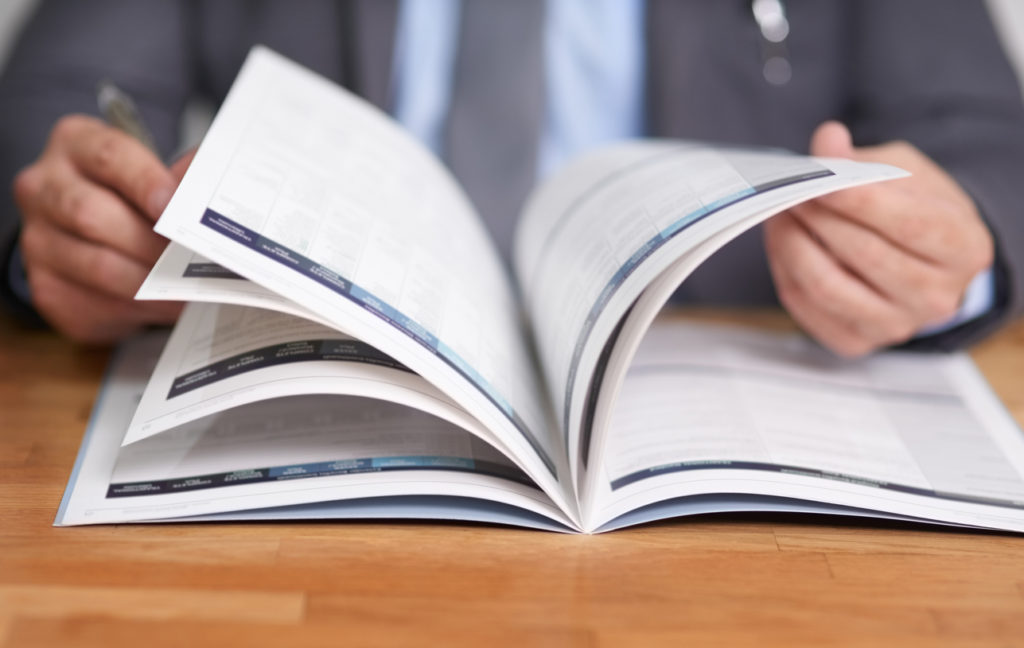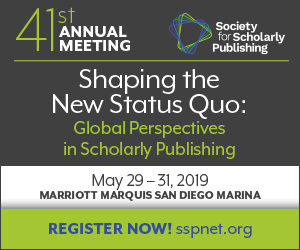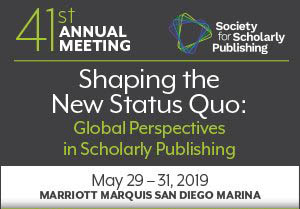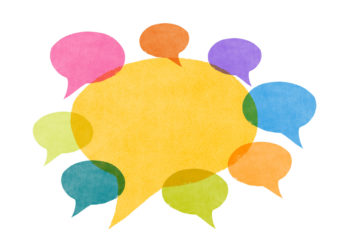Conference season has officially commenced. Over the next few months there will be back-to-back annual publishing conferences and as a result you may be spending limited time in your office. It makes sense then, to be certain you’re getting the most out of these annual meetings. For myself, I have learned to build in a routine preparation plan. Conferences may be the only time you have direct access to industry thought leaders and experts, and more important, other professionals who have an understanding of day-to-day publishing operations. For that reason, taking time to prepare for conferences ensures you are able to make the most of what they offer, especially if you are an early career professional.

People often question whether publishing conferences are “worth” attending. What I’ve found most valuable are the connections you make and the information you get while at a conference. These gatherings truly serve as a forum where knowledge can be exchanged from professional to professional. I always leave these meetings having spoken to at least one, if not many professionals who filled me with new ideas and/or a fresh perspective. Yes, you should do your due diligence to make sure you find the right training for your organizational needs, but once you’ve determined what meetings to attend, then preparing should be the next step. How you prepare for these meetings is one of the most important factors in determining what you get out of them.
Here is a list of tips I’ve found that have helped me prepare for a conference:
- Read the materials.

Now I know there is no need to tell publishing professionals to read, but I thought it was worth reiterating how important it is to read the conference materials in advance. Conference materials let you know about event schedules, session overviews, speakers, and moderators. Reviewing the conference materials prior to the meeting gives you time to really think about the different sessions, and decide what’s going to have the biggest impact on your work and organization.One thing that I’ve found useful when reading the conference info in advance is thinking about what problems I would like to help resolve in the office and using that to pick out my sessions according to the potential solutions they might offer. This process of looking for solution-based sessions really helps to sift through all the information and select exactly what will be most useful. On a practical level, knowing in advance which sessions you plan to attend can help you get to the right room in a timely manner, because standing at the back of an overcrowded room makes it difficult to get the most out of a session.
- Join an outing.

The sessions tend to feel like class, which is expected since we attend to learn; however, evidence suggests that learning outside the classroom can help raise achievement and overall engagement. So it’s nice that program committees for many conferences have started to really consider the whole-person paradigm, and are now offering fun health and wellness activities outside the traditional meeting spaces, such as yoga and local tours. These activities foster a different environment to learn and share experiences.Or, if you’re not into downward dog discussions, then perhaps check out one of the dinners. There are usually groups gathering over a meal for elaborate conversations. You’ll be amazed how much useful information you gather when you are not doing normal work-related activities. Make sure you’re aware of what activities are available to you.
- Prepare to network.
 As someone who leans introvert, networking is the bane of my existence, but it has also been critical to a great deal of the success I’ve found throughout my career. You never know whether the person you start chatting with over lunch might become a new peer mentor, colleague, friend — or all of the above! I’ve found it useful to look over the attendee list to see who you already know and who you want to get to know. Over the span of your career, you’ll likely begin running into the same people at conferences. A great tip is to keep in touch and reach out to them before attending your next one.Or, perhaps your society is in the process of a new venture and you find out another company has already completed a similar project and one of their team members will be in attendance. Checking out the attendee list in advance gives you some time to think about these types of considerations, and helps your networking be more intentional and useful. I always strive to meet at least 10 new people, but that was an arbitrary number I chose for myself. The idea here is to set a goal — something to strive toward — so you can hold yourself accountable. I would also suggest that after exchanging business cards, try to reach out to the new contact quickly. Following up leaves little room to forget what you chatted about; or, lose the card altogether (something I’ve done many times!) Check out who is coming and make it a part of your conference plan to meet and greet.If there are people you know you want to meet with, consider setting up appointments during specific breaks between meeting sessions or arranging dinner plans in advance. Waiting until you get to the meeting may leave you without a lot of options, as many of the people you want to talk to may already have busy schedules. Do your best to get on those schedules before the meeting starts!
As someone who leans introvert, networking is the bane of my existence, but it has also been critical to a great deal of the success I’ve found throughout my career. You never know whether the person you start chatting with over lunch might become a new peer mentor, colleague, friend — or all of the above! I’ve found it useful to look over the attendee list to see who you already know and who you want to get to know. Over the span of your career, you’ll likely begin running into the same people at conferences. A great tip is to keep in touch and reach out to them before attending your next one.Or, perhaps your society is in the process of a new venture and you find out another company has already completed a similar project and one of their team members will be in attendance. Checking out the attendee list in advance gives you some time to think about these types of considerations, and helps your networking be more intentional and useful. I always strive to meet at least 10 new people, but that was an arbitrary number I chose for myself. The idea here is to set a goal — something to strive toward — so you can hold yourself accountable. I would also suggest that after exchanging business cards, try to reach out to the new contact quickly. Following up leaves little room to forget what you chatted about; or, lose the card altogether (something I’ve done many times!) Check out who is coming and make it a part of your conference plan to meet and greet.If there are people you know you want to meet with, consider setting up appointments during specific breaks between meeting sessions or arranging dinner plans in advance. Waiting until you get to the meeting may leave you without a lot of options, as many of the people you want to talk to may already have busy schedules. Do your best to get on those schedules before the meeting starts! - Visit the vendors.
 You may not be planning to visit the vendors, or perhaps not the ones whose products or services you are not using. However, this is an easy and fun way to survey a variety of the latest industry technologies. Take time to see which vendors will be present at the conference. Most vendors offer interactive video demos of their newest products on their company website, so if possible, prior to meeting check out their websites and see what they are offering. You may even discover that your current vendor does not offer what another vendor can provide. Doing a bit of homework ensures that you can go to the booths prepared with specific questions for the representatives. Or, perhaps you can use the in-person meeting to ask the reps if they’d be willing demo that hot new product back at your organization. The representatives are almost always interested in following up with publishers and societies after the conference is over.And just in case you’re tempted, the quick business card drop and give-away grab visit does not count; rather, really take a minute to really speak to the vendors.
You may not be planning to visit the vendors, or perhaps not the ones whose products or services you are not using. However, this is an easy and fun way to survey a variety of the latest industry technologies. Take time to see which vendors will be present at the conference. Most vendors offer interactive video demos of their newest products on their company website, so if possible, prior to meeting check out their websites and see what they are offering. You may even discover that your current vendor does not offer what another vendor can provide. Doing a bit of homework ensures that you can go to the booths prepared with specific questions for the representatives. Or, perhaps you can use the in-person meeting to ask the reps if they’d be willing demo that hot new product back at your organization. The representatives are almost always interested in following up with publishers and societies after the conference is over.And just in case you’re tempted, the quick business card drop and give-away grab visit does not count; rather, really take a minute to really speak to the vendors. - Keep the end in mind.

Personally, I’ve found that the ideas which are planted during these conferences often take root when I’m back at my desk. So one great tip that was shared with me was to consider what you want to get out of the meeting in advance, then divide and conquer accordingly. Keep the endgame in mind when determining your sessions and gathering information throughout the conference. Only focus on areas where you need more development. For example, perhaps you divide the overall meeting into three larger categories – personal, departmental and organizational. These divisions will help to establish definitive boundaries and support you in determining what information you need to gather and how it fits in to what you want to achieve overall. If you’ve already thought about what you want to learn, when sitting in a session you’ll likely take more useful notes and can ask more informed questions to the presenters.Not everyone in your organization will be able to attend every meeting, so it’s important to share what you’ve learned with your colleagues. Writing up a summary of the key information points and ideas you’ve learned spreads the knowledge and makes meeting attendance more cost-effective, as your whole organization can benefit. Summarizing your notes also has the side benefit of forcing you to go back through the sessions and to consider what was important about each one. This type of reflection is a great way to prioritize the lessons learned and point you in the right direction for putting this newly acquired knowledge into practice.
The Society for Scholarly Publishing’s 41st Annual Meeting is right around the corner (yes, shameless plug)! Are you ready to get the most out that meeting? Do you have any preparation tips that have made your annual conference much more valuable?
Discussion
16 Thoughts on "Conference Season Is Here: Are you Prepared?"
If you use Journal Article Tag Set to publish your scholarly journals in XML, or Book Interchange Tag Set for books and proceedings XML, then you might want to at least get the conference proceedings of the JATS-CON 2019 which occurs next week in Cambridge, UK. See program on https://www.eventsforce.net/wgcconferencecentre/frontend/reg/tAgendaWebsite.csp?pageID=5101&ef_sel_menu=107&eventID=17&mode=. The proceedings will be freely available after the conference from https://jats.nlm.nih.gov/jats-con/ (where previous proceedings are hosted also).
Great post, Jasmine, thank you! I love point 5. I am always trying to cover a zillion bases at every conference, but as I grow in my career and in my knowledge, I’m learning what it is that I can *only* get out of the conference vs (for example) what I can get out of videos, blogs, articles etc after the event – and so I’m learning that it’s OK to prioritize e.g. meetings and networking, and to forgive myself for missing a talk I had hoped to get to! Turning that around and thinking about it from the perspective of the “ends” rather than the “means” is a good approach – thank you!
Boy do I relate to this post! I have a reputation for being knowledgeable and having a great network. Guess how that happened. CONFERENCES! I have been variously self-employed, a business owner, and an employee in my long career (this will be my 40th SSP, or thereabouts–I started with meeting no. 2, and I don’t think I’ve missed any). In the times I was an employee, it was very frustrating to me that I had to keep correcting my employer, who kept referring to these as “shows.” THEY’RE NOT SHOWS! It was clear they saw them only as a sales opportunity. I have never seen them that way. They are learning and networking opportunities. Well done, Jasmine, great advice!
Great post, Jasmine!
Many conferences have meet-and-greets for new attendees. These might be prior to the start of the main conference, at a breakfast, or another dedicated networking time. These are great times to meet new people. Shh, I confess that I try to get to the First Time Attendee/New Member breakfast every year at SSP (even if I can only duck in for the last 20 minutes). This is a practice that I started back in grad school, where I attended the first year orientation meet-and-greet four out of my five years–made some of my best and lifelong friends at those events!
This is a post I’ll be saving as a great refresher on preparing for conferences. Thank you!
One tip I’ve found useful is emailing a presenter in advance with a question, so that he or she can address it during the session. If your question is not addressed, you have something to ask at the Q&A, or when introducing yourself after the session.
These are great tips! Thanks for sharing. I’ll definitely be working on these ahead of SSP.
Excellent post, Jasmine! 🙂 Looking forward to more from you and your fellow chefs in the ‘dessert course’ – one of my favorite parts of the meeting!
Great post, Jasmine. I especially appreciate point #5, and the idea to break meetings down into personal, departmental and organizational categories. Thanks for sharing such practical tips!
Much appreciated Jasmine! I’ll be attending my first SSP conference and looking forward to it. As a librarian, my conference background is largely based in info/lib area. Really looking forward to SSP and breaking into better understanding the publishers’ view of the changes in this field.
Hi Jasmine, much appreciated post- is there any comprehensive list of all industry conferences archived for all to access?



